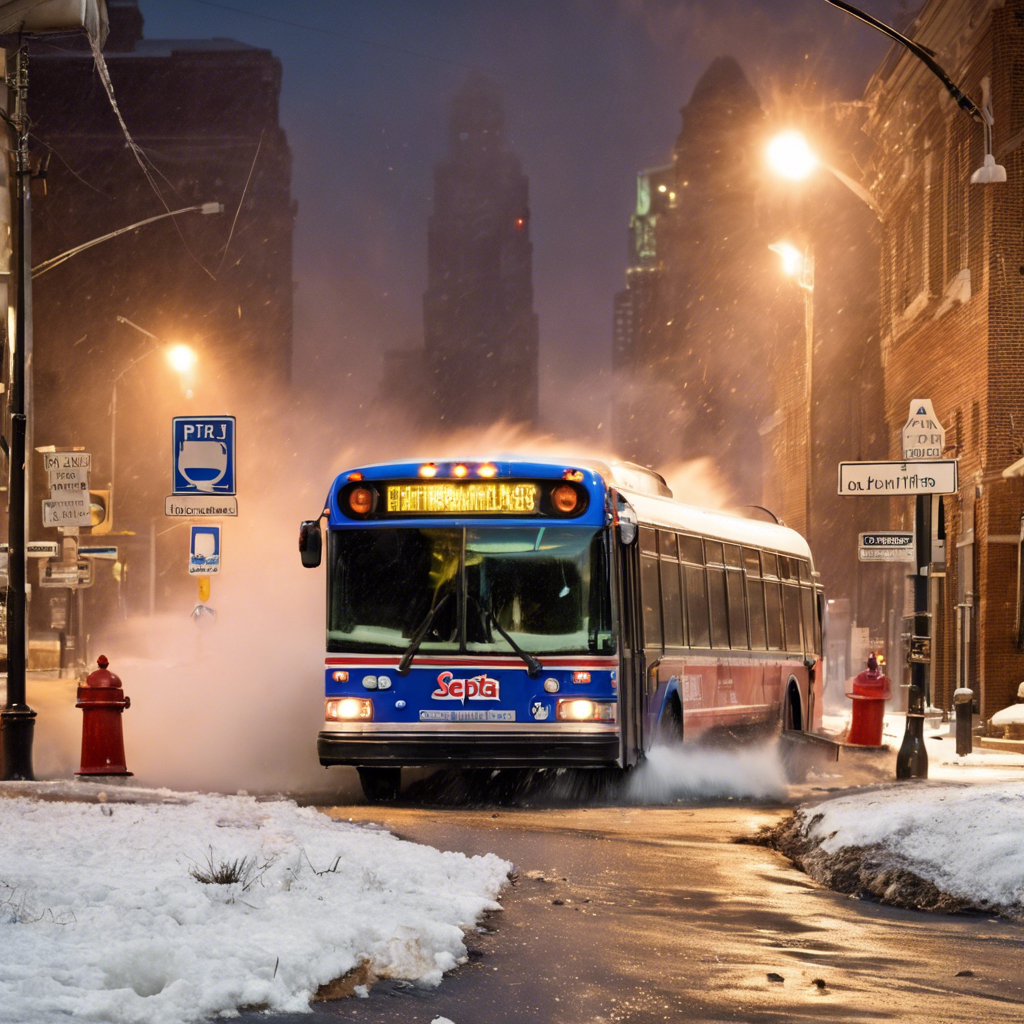SEPTA Bus Collides with Fire Hydrant in Icy Philadelphia Conditions

Icy roads lead to a SEPTA bus accident in North Philadelphia
In a chilling incident on Monday night, a SEPTA bus on Route 27 collided with a fire hydrant after sliding down a hill in North Philadelphia. As the city grappled with icy road conditions caused by the snowfall, the accident serves as a reminder of the challenges faced by public transportation during winter weather. Thankfully, there were no reported injuries, but the incident highlights the importance of road safety and the need for precautionary measures during inclement weather.
A slippery descent leads to an unfortunate collision
According to SEPTA, the incident occurred around 8:30 p.m. near the intersection of Manayunk Avenue and Burnside Street. As the bus navigated the treacherous road, it made contact with a fire hydrant, resulting in minor damage to the vehicle. A video captured by a viewer also shows the bus colliding with a parked car, further emphasizing the challenges posed by the icy conditions.
Safety first: SEPTA’s response and precautionary measures
SEPTA confirmed that there were no injuries as a result of the accident, a testament to the driver’s skill and the effectiveness of safety protocols. However, the incident prompted the transit company to implement detours on various bus lines to ensure the safety of both passengers and drivers. These detours aim to avoid areas with particularly hazardous road conditions, reducing the risk of accidents.
The impact of winter weather on public transportation
Winter weather poses unique challenges for public transportation systems, and Philadelphia is no exception. Snow and ice can make roads slippery, reducing traction and making it difficult for vehicles to maintain control. SEPTA, like many transit agencies, takes precautions during inclement weather, such as increasing maintenance efforts, monitoring road conditions, and adjusting schedules to accommodate potential delays. However, accidents can still occur, highlighting the need for continued vigilance and adaptation.
Lessons learned: Improving winter safety measures
The incident serves as a reminder for SEPTA and other transit agencies to continually evaluate and improve their winter safety measures. This includes regular maintenance of vehicles to ensure they are equipped to handle icy conditions, providing thorough training to drivers on navigating slippery roads, and implementing effective communication channels to inform passengers of any service disruptions or detours. By proactively addressing these challenges, transit agencies can minimize the risk of accidents and ensure the safety and reliability of their services.
The importance of individual responsibility
While transit agencies play a crucial role in ensuring the safety of public transportation during winter weather, individual responsibility is equally important. Passengers should exercise caution when boarding and disembarking buses, being mindful of slippery surfaces. Additionally, pedestrians and drivers should be aware of the potential hazards posed by icy roads and take appropriate measures to prevent accidents.
Conclusion:
The SEPTA bus accident in North Philadelphia serves as a stark reminder of the challenges faced by public transportation during winter weather. While no injuries were reported, the incident highlights the need for continued efforts to improve winter safety measures. By prioritizing regular maintenance, driver training, and effective communication, transit agencies can minimize the risk of accidents and ensure the safety and reliability of their services. However, individual responsibility also plays a crucial role in preventing accidents during icy conditions. As Philadelphia continues to grapple with winter weather, it is imperative that both transit agencies and the public remain vigilant and take necessary precautions to ensure a safe journey for all.

